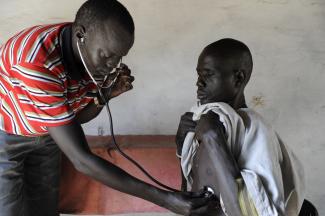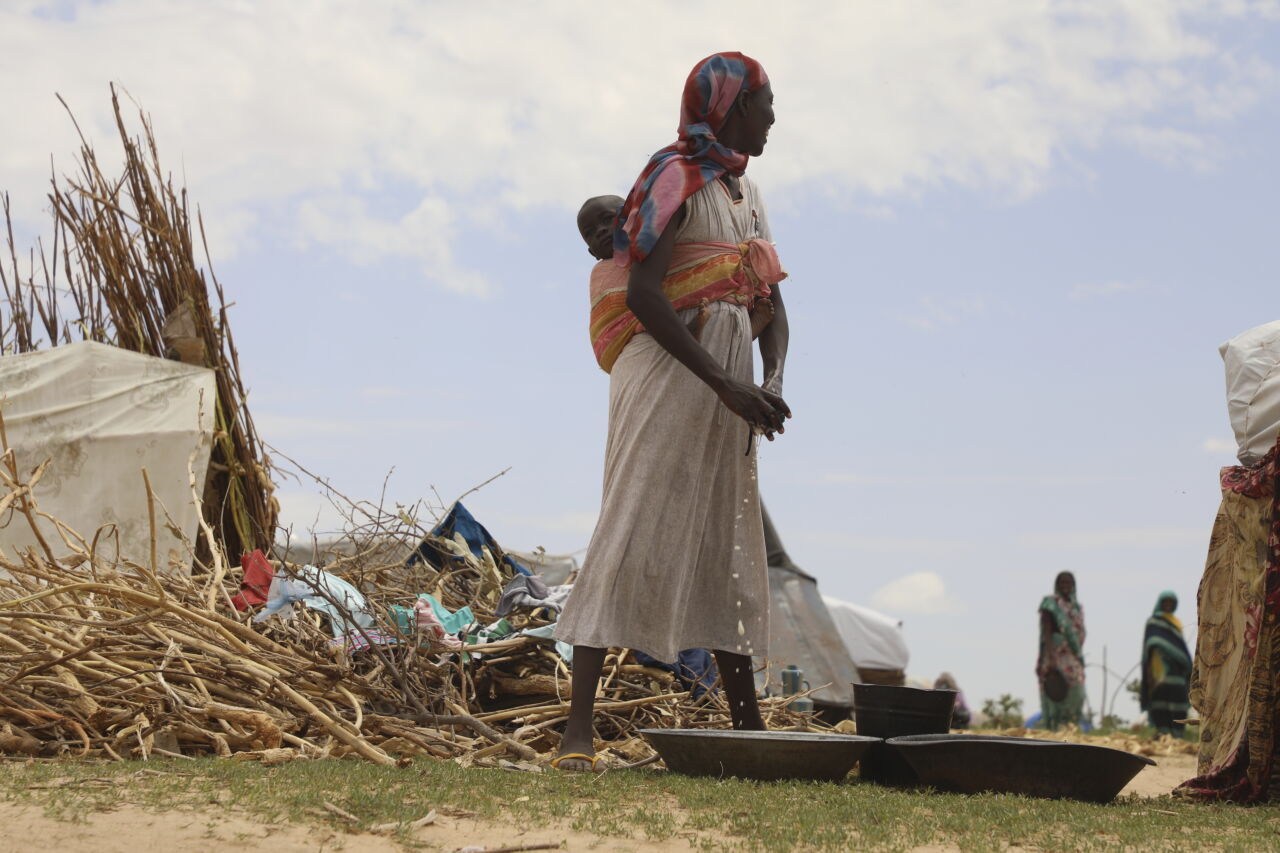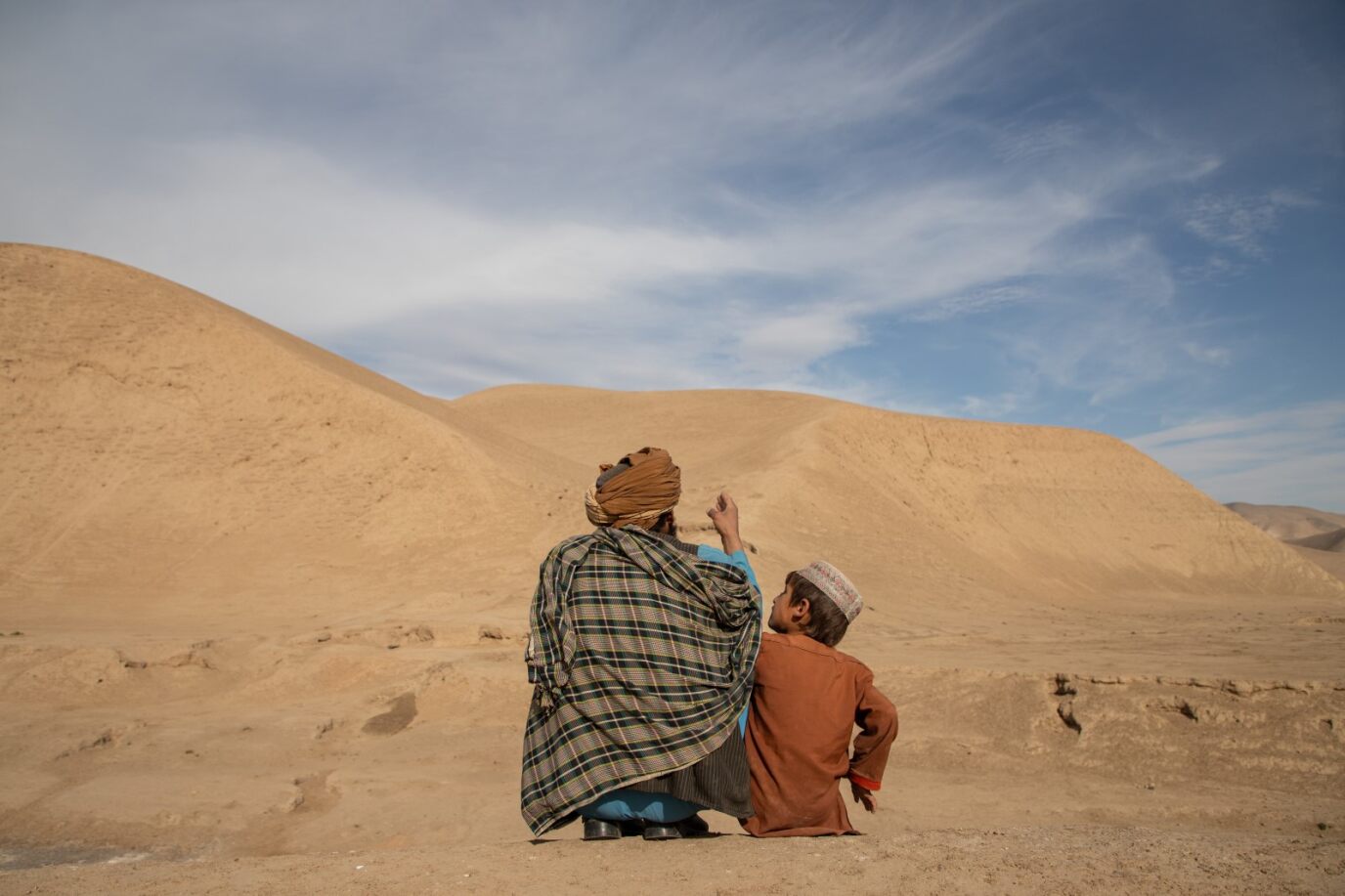Global challenges
Pay attention to co-benefits

Shocked by the devastation wrought by Typhoon Bopha, the lead negotiator for the Philippines was visibly shaken at the Doha climate talks at the end of November 2012. The catastrophe showed how directly his country is at risk from climate change. Nonetheless, the whole of humanity is affected by this risk. In 2012, New York was hit by Hurricane Sandy. This summer, Germany experienced its second “flood of the century” within a decade. Experts expect weather-related damage in Germany to run to hundreds of billions of euros in the decades ahead.
Climate change can only be mitigated by international action. It is not the only challenge that requires an international response. The same is true of peace and security, environmental protection, global trade and financial markets or the control of infectious diseases. Even though solutions are desperately needed and would serve every nation, however, international climate negotiations, global trade rounds, G20 summits, UN General Assemblies and the UN Security Council often deliver less than expected.
Markets generally do not provide public goods. In many cases, these goods depend on government action. In the case of global public goods (GPGs), collective action by many or even all nation-states is necessary. National governments have little incentive to work for GPGs of their own accord. On the one hand, they do not want to risk acting alone and shouldering costs for “free riders”. On the other hand, collective interest in providing GPGs often competes with short-term individual interests such as fast economic growth.
What does the collective-action dimension mean for development policy? In the past 10 years, developing countries have made substantial progress on reducing poverty. That good work, however, may yet be undermined by climate change, natural disasters, crises, conflicts and pandemics. Therefore, international development agencies increasingly aim to help partner countries become more resilient. At the same time, partner countries – especially the emerging economies – should be enabled to contribute to the provision of global public goods themselves.
We believe that development cooperation (DC) can play a greater role in the provision of GPGs. The toolkit needs to be modified however.
Additional efforts
Some partner countries and international agencies argue in favour of keeping poverty reduction apart from GPG provision. But there are many points where the two issues are intertwined (co-benefits). Supporting fragile states to establish sound public institutions, for example, will contribute to poverty reduction and simultaneously deprive international terrorism of a breeding ground.
However, co-benefits may entail additional costs. It is more expensive to build a climate-friendly wind park than a conventional, fossil-fuel power plant of the same capacity. This extra expenditure is a sensible investment for both donors and recipients. Besides a poverty reduction effect it also creates an environmental benefit for the whole of humanity.
Development cooperation is therefore a driving belt to provide GPGs. To some extent, development agencies can even compensate for the lack of global agreements on sharing burdens internationally (for instance, an effective UN climate change convention). Agencies can raise awareness for GPG benefits in partner countries by demonstrating convincing solutions. Donor action can thus contribute to shaping preferences in developing countries (including for international negotiations).
Unfortunately, the potential has not yet been fully tapped. We see a need for action at three levels:
- Innovation and pilot projects can help highlight the cost-benefit ratios of GPG provision for all involved. One example is the GIZ’s Natural Resource Management Programme in India (see box). However, the impact of such projects may take some time to materialise. Conventional DC – with its rigorous cost optimisation, rigid target definitions and strict deadlines – may not always be an appropriate framework.
- The design of development projects should be geared to systematically providing co-benefits to the maximum extent possible. Cost-benefit analyses should always take into account possible GPG gains, i.e. impacts that go beyond reducing poverty and deliver positive results in terms of environmental sustainability or conflict prevention. At present, such potential impacts are often not sufficiently assessed, if considered at all, during project design. The reason is that development agencies tend to shy away from risks and costs. It would therefore make sense to require agencies to assess the co-benefit potential of efforts whenever they plan development measures.
- ODA (official development assistance) funding for GPG-related co-benefits tends to be viewed with scepticism by partner governments. They worry that correspondingly less money will be made available for conventional poverty reduction. Such scepticism can only be allayed by extra funding to top up donors’ country allocations. Development banks could disburse such additional funds in the form of intelligent credit products, for example, on terms that take account of the anticipated additional benefit.
To avoid destructive competition on terms and conditions, the international donor community needs a standard method for assessing both co-benefits and the costs of achieving them. Innovation, project design and financing for the GPG provision, moreover, will obviously require additional funding that needs to be raised from development agencies such as GIZ, KfW, World Bank or UNDP. Alternatively, other sources can be used. The Global Environment Facility (GEF) is an established model for funding global climate and environment protection. The new Green Climate Fund, which will soon be operative under the UN Framework Convention on Climate Change, could also serve this purpose. This can be an exemplary approach for the provision of other GPGs.
Development with global benefits
Several other implications of the co-benefit concept in development cooperation require further discussion:
- Coherence: various departments of Germany’s Federal Government are involved in GPG provision. When DC serves as the vehicle, the Federal Ministry for Economic Cooperation and Development (BMZ) should play the lead role, relying on decades of experience of collaboration with partner countries. In those cases, BMZ can ensure that GPG provision is prudently linked to poverty reduction. In consultation with other ministries, the BMZ should focus particularly on GPGs and contexts where co-benefits look most promising. This especially concerns emerging economies because they are both relevant for GPGs and account for the majority of the world’s poor today.
- Post-2015 agenda: GPG provision should be reflected in the framework and goals that are to be defined as the follow-up to the Millennium Development Goals (see Dirk Messner in E+Z/D+C 2013/07-08, p. 294 ff.). It is important to link poverty reduction to GPG provision in a coherent system of targets.
- ODA accounting: the international rules on what is considered ODA will need to be reviewed as a result of the Post-2015 process. The new system should give scope to GPG provision, provided that measures also contribute to poverty reduction.
- Other GPGs: the mitigation of and adaptation to climate change already play a prominent role in DC, and the concepts for doing so are advanced. Other GPGs, however, such as peace and security, fair international trading system, international health, disaster prevention, international knowledge management as well as various environmental issues require more thought, to better understand and utilise co-benefits through DC.
Theoretical considerations aside, the concept of GPGs has a host of practical implications. These are not yet anchored in the current development cooperation system. We need new incentives in our results logic and funding allocation to stimulate innovation, conceptualisation, implementation and financing of measures that are aimed not only at reducing poverty but also at generating GPG-related co-benefits. Our essay is meant to contribute to such a debate.
Moira Feil is a policy officer at Germany’s Federal Ministry for Economic Cooperation and Development (BMZ).
moira.feil@bmz.bund.de
Mario Stumm is a policy officer at the BMZ.
mario.stumm@bmz.bund.de
Jürgen Zattler heads the BMZ Directorate for European and Multilateral Development Policy.
juergen.zattler@bmz.bund.de
This article expresses the authors’ personal views.














